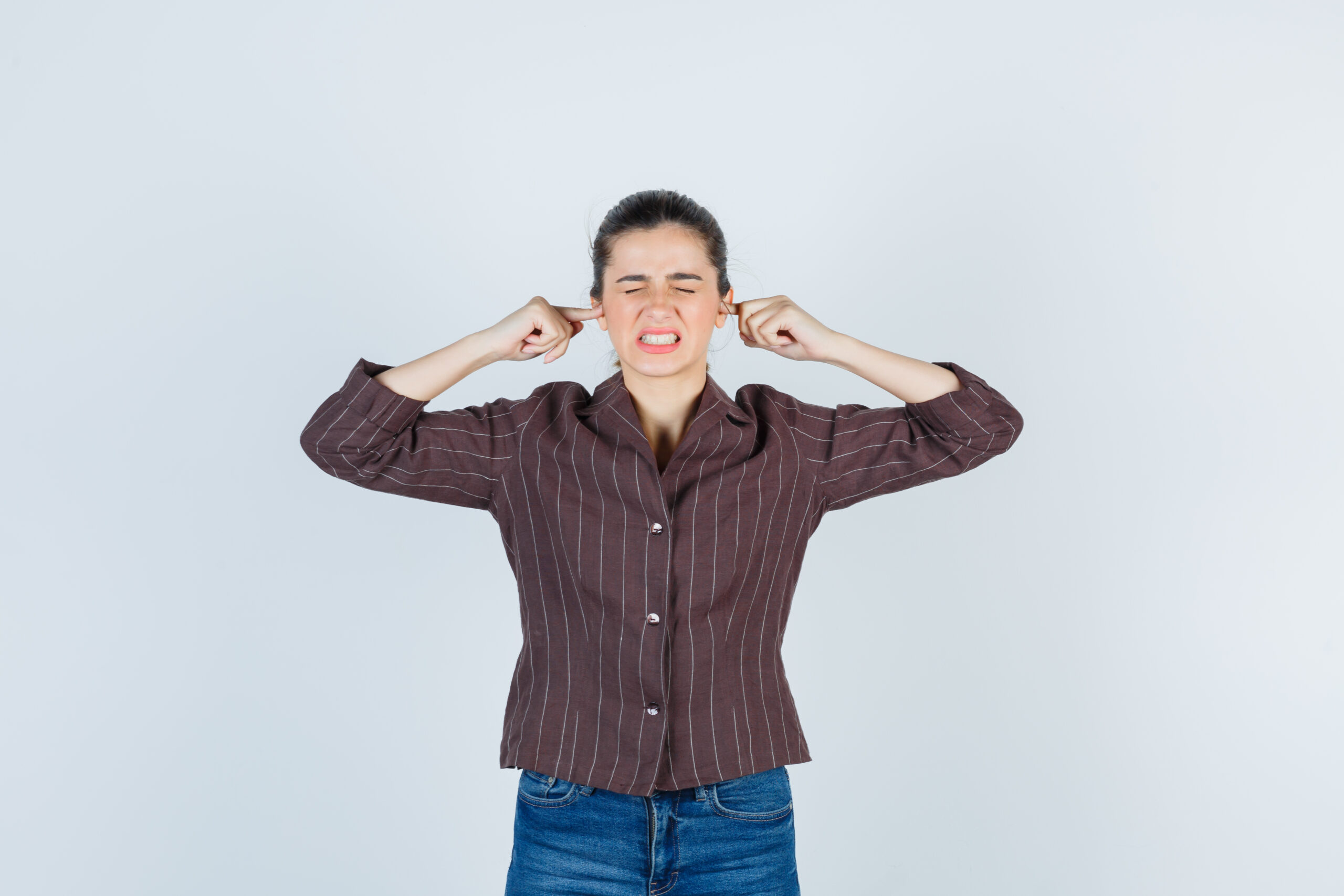Table of Contents
Have you ever noticed a popping sound in your ear when swallowing, yawning, or flying in an aeroplane? For most people, this sensation is temporary and harmless, often linked to changes in air pressure. However, if the ear crackling or clicking sound in the ear happens often or lingers, it could point to underlying issues such as Eustachian tube dysfunction, sinus congestion, or even early signs of hearing loss.
In this guide, we’ll break down everything you need to know about ear popping—from common causes and symptoms to diagnosis and treatment options available in Singapore.
Understanding the Popping Sound in the Ear
A popping sound in the ear can feel unusual and is often described as:
- Crackling – similar to the sound of crumpling paper
- Clicking – like a light tapping or snapping noise
- Pressure shifting – a sense of fullness or movement, especially during altitude changes
This typically happens when the Eustachian tube—a narrow passage that connects the middle ear to the back of the nose and throat—opens and closes to regulate air pressure and drain fluid. While occasional ear popping is normal, persistent or painful popping may be a sign of ear infections, allergies, or other medical conditions that need attention.
Common Causes of Ear Popping
Several factors can lead to ear crackling or popping sounds. Below are the most common:
1. Eustachian Tube Dysfunction
When the Eustachian tube is blocked or doesn’t function properly, pressure cannot equalize inside the ear, leading to:
- Popping or clicking sound in ear
- Ear fullness or pressure
- Temporary hearing changes
This condition often arises from allergies, sinus infections, or colds.
2. Changes in Air Pressure
Many people experience ear pressure popping during:
- Airplane take-off and landing
- Scuba diving
- Driving in mountainous areas
This is commonly referred to as “ear barotrauma.”
3. Earwax Buildup
Excessive wax can block the ear canal, causing:
- Ear crackling
- Muffled hearing
- Discomfort
4. Middle Ear Infections
Fluid buildup behind the eardrum may cause a clicking sound in ear, pain, and even fever.
5. Jaw Problems (TMJ Disorders)
The temporomandibular joint (TMJ), located near the ear, can create popping sounds if misaligned.
6. Hearing Loss or Tinnitus
Sometimes, persistent popping is linked to early signs of hearing loss or tinnitus. If you notice changes in your hearing, it’s best to get a professional audiometry test in Singapore to evaluate your ear health.
When to Worry About Ear Popping
Occasional popping is harmless, but you should consult a hearing specialist in Singapore if you experience:
- Persistent or painful ear popping
- Hearing loss or muffled sounds
- Ringing in the ears (tinnitus)
- Dizziness or balance issues
- Discharge from the ear
These could indicate conditions such as infections, Eustachian tube dysfunction, or chronic ear disorders requiring treatment.
Diagnosis of Ear Popping
To determine the cause of ear popping, an audiologist in Singapore may recommend:
- Audiometry Test – To measure hearing ability and detect signs of hearing loss.
- Otoscopy – A physical examination of the ear canal and eardrum.
- Tympanometry – To check middle ear function and pressure.
Treatment Options for Ear Popping
Treatment depends on the underlying cause.
1. Self-Care Remedies
- Swallowing, yawning, or chewing gum to open the Eustachian tube
- Nasal sprays for congestion
- Warm compresses for ear discomfort
2. Medical Treatment
- Antibiotics for ear infections
- Decongestants for sinus-related popping
- Procedures to drain fluid in chronic cases
3. Hearing Solutions
If ear popping is associated with hearing problems, treatments may include:
- Hearing loss treatment for underlying issues
- Tinnitus treatment if ear popping comes with ringing
- Hearing aid for tinnitus for combined hearing loss and tinnitus
- Special devices like hearing aids for the elderly in Singapore
- For children experiencing ear popping due to ear infections or fluid buildup, early intervention with a hearing aid may be recommended
Preventing Ear Popping
While occasional ear popping is common, there are simple steps you can take to reduce the chances of ear crackling or pressure-related discomfort:
- Stay hydrated during flights – Drinking water and swallowing often keeps your Eustachian tubes active, helping to balance pressure naturally.
- Avoid sudden altitude changes when congested – If you have a cold, sinus infection, or allergies, try to delay flying or driving through high altitudes until you recover, as congestion makes equalizing pressure harder.
- Practice gentle ear equalizing techniques – Methods like yawning, swallowing, or performing the Valsalva maneuver (pinching your nose and blowing gently) can relieve ear pressure safely.
- Maintain ear health – Regular ear care, avoiding excess wax buildup, and protecting your ears from loud noise can prevent long-term issues that cause popping.
- Schedule regular hearing check-ups – Visiting an audiologist for routine ear and hearing tests ensures any underlying problems are detected early and treated before they worsen.
Conclusion
A popping sound in the ear is usually harmless, but when persistent, it may be linked to conditions such as Eustachian tube dysfunction, sinus infections, or early hearing loss. Fortunately, effective treatments and hearing solutions are available in Singapore.
If you are experiencing ongoing ear popping, consider scheduling a professional evaluation such as an audiometry test in Singapore, to safeguard your hearing health.
Frequently Asked Questions
Yes, occasional popping due to pressure changes is normal and usually harmless. It happens when your ears try to equalize air pressure, like during yawning or flying. However, if the popping is frequent, painful, or long-lasting, it may indicate an underlying ear condition that needs medical attention.
Yes, earwax buildup can block the ear canal and cause crackling or popping sounds. Hardened or excessive wax may press against the eardrum, leading to discomfort, muffled hearing, and strange noises. Proper cleaning by a professional can help restore normal hearing and relieve the crackling.
It’s when the tube connecting your middle ear to the throat doesn’t open or close properly. This can cause trapped fluid, pressure imbalance, ear fullness, and frequent popping. Allergies, sinus infections, or colds are common triggers.
Chew gum, yawn, or swallow to help open the Eustachian tubes and balance pressure. Drinking water or performing gentle pressure equalizing techniques, like the Valsalva maneuver, can also reduce discomfort during take-off and landing.
Yes, especially if the clicking persists or is accompanied by symptoms like ear pain, dizziness, hearing loss, or discharge. These could point to an ear infection, fluid buildup, or other conditions that require medical evaluation.
Yes, tinnitus can sometimes present with popping or crackling sounds, along with ringing or buzzing in the ears. While occasional episodes may not be serious, ongoing symptoms should be checked to rule out underlying ear or hearing issues.
Yes, children are more likely to experience ear popping because their Eustachian tubes are smaller and more prone to blockage. Ear infections and fluid buildup are common causes, and in some cases, these may affect hearing if not treated early.
Hearing aids themselves don’t stop the popping sound, but they can help manage related issues like hearing loss or tinnitus. For people whose ear popping is linked to these conditions, hearing devices may improve overall hearing clarity and comfort.
Yes, in some cases. If the popping is ongoing and comes with muffled hearing, difficulty understanding speech, or ringing in the ears, it may signal early hearing loss. Getting your ears checked can confirm whether it’s a temporary issue or part of a larger problem.
You can visit an audiologist or an ear specialist for a proper diagnosis. They can examine your ears, run hearing tests, and recommend treatments based on the underlying cause of the popping sound.

Evlin is passionate about helping people with hearing loss. With years of experience in audiology, she has diagnosed and treated a wide range of hearing conditions across all age groups. She is accredited to conduct comprehensive hearing assessments and provide treatments for patients from newborns to the elderly. Committed to personalized care, she strives to empower patients to fully engage in life with better hearing.
Designation: Clinical Audiologist
Qualification: Bachelor of Health Science (Honours) (Audiology), University of Science Malaysia
Membership: .Society of Audiology Professionals in Singapore (SAPS)
